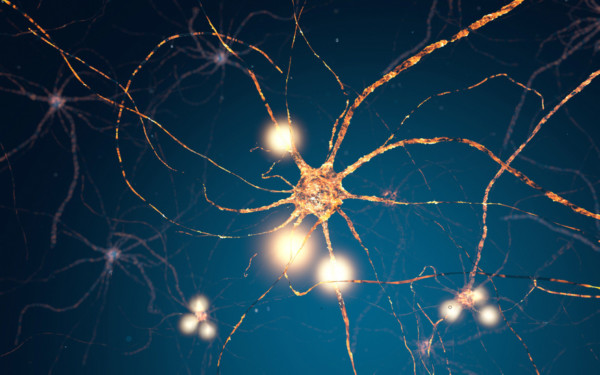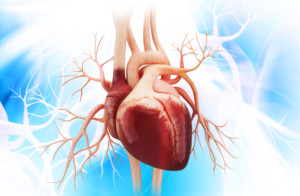
Glutamic acid has a key role in the central nervous system. Buy the bestselling glutamic acid supplements from Amazon.com
Contents
What is Glutamic Acid?
Glutamic acid, abbreviated as E or Glu, is an important amino acid for the synthesis of proteins. The salts and carboxylate anions associated with glutamic acid are referred to as glutamates.
This amino acid contributes to the health of the immune and digestive systems, as well as energy production. Muscle tissues are an important site for storing and producing this amino acid. Each day the muscles release approximately 80g of glutamic acid into the circulation to be used throughout the body.
Glutamic acid is in the same amino acid family group as glutamine and they can alter their structure to transform into each other. Glutamine is required by the muscles more than any other amino acid, and the muscles rapidly use glutamine during exercise. Therefore body builders and other athletes that rely on muscle mass, endurance and strength have a higher demand for glutamine. Consequently, having an adequate supply of glutamine/glutamic acid is important to support a healthy, active body.
The Role of Glutamic Acid in the Body
One of its major roles is as an excitatory neurotransmitter within the central nervous system. It is the most common neurotransmitter present in the spinal cord and brain. As a neurotransmitter, this amino acid influences several areas of the brain including the thalamus, brain stem, spinal cord, basal ganglia and pons.
Before glutamic acid can act as a neurotransmitter, it needs to attach to specific receptors in the central nervous system. One of these receptors is the NMDA (N-methyl-D-aspartate) receptor. Here, it regulates the number of calcium, sodium and magnesium ions that can enter and exit the cells.
In addition to being a neurotransmitter in its own right, glutamic acid is also important in the synthesis of gamma-aminobutyric acid (GABA). An inhibitory neurotransmitter, GABA has the opposite effect of glutamic acid and decreases activity within the central nervous system. Due to glutamic acid’s influence on other neurotransmitters, it has an integral role in a number of neuropsychological conditions.
Medical Uses
Mental Health
Glutamic acid is essentially a fuel for the brain. In addition to providing a direct energy source for the brain to function at a high level, this amino acid stimulates mental alertness and improved memory function.
Because of the important role this amino acid has in cognitive function, some medical practitioners recommend supplementation to treat conditions such as attention deficit hyperactivity disorder (ADHD). The belief is that this amino acid will help children with behavioural problems and make it easier for them to concentrate and facilitate a better learning environment.
Furthermore, glutamic acid is very important in the treatment of conditions such as bipolar disorder, schizophrenia, depression, anxiety and other mood related disorders. Studies have shown that individuals that suffer from these neuropsychological conditions typically have an unbalanced ratio or concentration of neurotransmitters.
Low GABA levels are frequently associated with severe depression, neuroticism, anxiety and manic mood states1,2. There may also be a link between glutamic acid and aggression, with studies showing that mice engaged in aggressive behavior have low levels of GABA and glutamic acid3.
Detoxification
Glutamic acid is essential for detoxifying ammonia. This amino acid bonds to nitrogen atoms and in turn, creates glutamine. This conversion from glutamic acid into glutamine is the only way to remove this toxic metabolic waste product, making it essential for a healthy body.
Immune System
The body uses this amino acid to synthesise glutathione, which is one of the most effective and abundant antioxidants in the body. Glutathione is extremely important in the neutralisation of free radicals, helping to protect cells and boost the immune system.
Heart Function
Research has shown that this amino acid may be useful in protecting the heart in patients with heart disease. Glutamic acid in the form of monosodium glutamate (MSG) can increase exercise tolerance and improve heart function when injected intravenously in patients with stable angina pectoris 4. This amino acid may also help to reduce chest pain commonly associated with coronary heart disease.
Prostate Health
Glutamic acid plays a very important role in facilitating the normal functioning of the prostate. Consequently, prostate fluid has a high glutamic acid concentration.
As men age, the prostate gland begins to enlarge. The medical name for this condition is benign prostatic hyperplasia (BPH). Scientists often recommend taking glutamic acid supplements to help reduce the symptoms of this condition.
Dietary Sources
This amino acid is present in high protein foods such as fish, meat, eggs, poultry, and dairy products. Protein rich vegetables are also a good source. Certain legumes, like lentils and beans, have particularly high concentrations of glutamic acid.
In addition to occurring naturally in foods, people frequently use this amino acid as an additive to enhance the flavour of certain products. This is often in the form of monosodium glutamate (MSG).
Supplements
In most cases, people obtain enough glutamic acid from their diet. Therefore supplementation is not usually necessary. However, body builders and other athletes may find supplements helpful to better support the body during challenging exercise regimes and sporting competitions.
Many supplements contain glutamine, which is closely associated to glutamic acid. The recommended daily dose of these supplements can vary from between 500 and 2,000 mg.
It is important to consult your doctor before taking any supplements, especially if suffering from liver or kidney diseases, as well as any neurological disease. Although it is a safe amino acid, there can be some side effects from supplementation, such as headaches and fatigue.
Deficiency
Deficiencies can occur in malnourished individuals or those that have problems with their immune system. In the case of a deficiency, symptoms include lethargy, fatigue, insomnia and the inability to concentrate. These symptoms are characteristic of excessive ammonia build-up.
Conclusion
In addition to protein synthesis, glutamic acid has several key functions within the body. It acts as an important neurotransmitter and the body uses it to create other neurotransmitters, such as GABA. Thus, this amino acid is critical for healthy brain development and function.
It helps to stimulate learning, alertness, long term memory and other cognitive functions. Glutamic acid is also important for energy production, protecting the immune system, removing toxic ammonia from the body and supporting muscle growth and function.
This amino acid is often used within treatments for a range of neurological disorders. Research has also shown that it is important in the protection of the heart muscle and promoting good prostate health in men. Many athletes also benefit from glutamic acid due to its ability to provide the necessary energy for muscle function, thus increasing endurance and supporting muscle growth.
Most people receive enough glutamic acid through biosynthesis and diet. In some situations supplementation may be beneficial, although it is recommended to consult a doctor first.
Bibliography
- Petty F. GABA and mood disorders: a brief review and hypothesis. Journal of Affective Disorders. Internet. 1995. 34(4):275-81. Available from: http://www.ncbi.nlm.nih.gov/pubmed/8550953 ↩
- Hettema JM, An SS, Neale MC, Bukszar J, Van Den Oord EJ, Kendler KS, Chen X. Association between glutamic acid decarboxylase genes and anxiety disorders, major depression, and neuroticism. Molecular Psychiatry. Internet. 2006. 11(8):752-62. Available from: http://www.ncbi.nlm.nih.gov/pubmed/16718280 ↩
- Clement J, Simler S, Ciesielski L, Mandel P, Cabib S, Puglisi-Allegra S. Age-dependent changes of brain GABA levels, turnover rates and shock-induced aggressive behaviour in inbred strains of mice. Pharmacology, biochemistry and behaviour. http://www.ncbi.nlm.nih.gov/pubmed/3562502 ↩
- Thomassen A, Botker HE, Nielsen TT, Thygesen K, Henningsen P. Effects of glutamate on exercise tolerance and circulating substrate levels in stable angina pectoris. American Journal of Cardiology. 1990. 65(3):173-8. Available from: http://www.ncbi.nlm.nih.gov/pubmed/1967510 ↩



